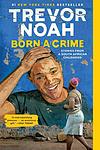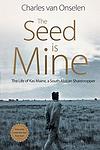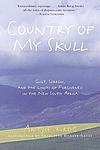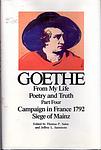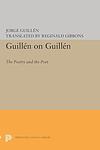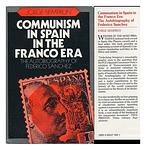The Greatest Spanish, South African "Nonfiction" Books Since 1970
Click to learn how this list is calculated.
This list represents a comprehensive and trusted collection of the greatest books. Developed through a specialized algorithm, it brings together 300 'best of' book lists to form a definitive guide to the world's most acclaimed books. For those interested in how these books are chosen, additional details can be found on the rankings page.
Genres
Countries
Date Range
Reading Statistics
Click the button below to see how many of these books you've read!
Download
If you're interested in downloading this list as a CSV file for use in a spreadsheet application, you can easily do so by clicking the button below. Please note that to ensure a manageable file size and faster download, the CSV will include details for only the first 500 books.
Download-
1. Long Walk To Freedom by Nelson Mandela
"Long Walk to Freedom" is a powerful autobiography that chronicles the extraordinary life of Nelson Mandela. From his humble beginnings in a rural village to becoming the first black president of South Africa, Mandela's journey is one of resilience, determination, and unwavering commitment to justice and equality. Through his personal experiences, he provides a vivid account of the struggle against apartheid, his 27 years of imprisonment, and the eventual triumph of democracy. This book serves as an inspiring testament to Mandela's unwavering spirit and his lifelong fight for freedom and human rights.
-
2. Mortal y rosa by Francisco Umbral
"Mortal y Rosa" is a heartbreaking and poignant narrative about a father's grieving process after the loss of his young son. The novel is a profound exploration of death, love, and loss, with the author using beautiful, poetic language to express his deep sorrow and pain. It is not just a lamentation, but also a reflection on life, childhood, and the fleeting nature of time. The book is a testament to the power of words in expressing the inexpressible and a moving tribute to a life cut tragically short.
-
3. Kaffir Boy by Mark Mathabane
This autobiography tells the story of a young boy growing up in apartheid-era South Africa. Despite enduring extreme poverty, brutal police raids, and constant racial discrimination, the protagonist manages to escape his harsh reality through education and tennis. His determination and resilience eventually lead him to receive a scholarship to an American university, providing him a chance to escape the oppressive system of apartheid.
-
4. Born A Crime by Trevor Noah
"Born A Crime" is a captivating memoir that chronicles the life of Trevor Noah, a South African comedian and television host. Set during the apartheid era, the book explores Noah's experiences as a mixed-race child growing up in a society where interracial relationships were illegal. With humor and insight, Noah recounts his struggles with identity, poverty, and racism, while also highlighting the resilience and strength of his mother who played a pivotal role in his life. This thought-provoking memoir offers a compelling and personal perspective on race, family, and the power of laughter in the face of adversity.
-
5. The Seed Is Mine by Charles Van Onselen
"The Seed Is Mine" is a historical non-fiction book that explores the life of a black South African named Klaas, who lived through the tumultuous years of apartheid. Through extensive research and interviews, the author delves into Klaas' personal experiences, struggles, and aspirations, shedding light on the complex dynamics of race, class, and power during this period. The book offers a poignant and intimate portrayal of one man's fight for dignity and justice amidst a system designed to suppress and oppress.
-
6. Country Of My Skull by Antjie Krog
"Country Of My Skull" is a powerful and deeply personal account of the author's experiences as a journalist covering the Truth and Reconciliation Commission in post-apartheid South Africa. Through her vivid and introspective narrative, the author explores the complexities of forgiveness, justice, and the collective healing process of a nation grappling with its painful past. This thought-provoking book offers a unique perspective on the complexities of reconciliation and the enduring impact of trauma on individuals and societies.
-
7. My Last Sigh by Luis Buñuel
"My Last Sigh" is an autobiography that offers a candid and vivid account of the life and career of one of cinema's most groundbreaking and influential directors. The book delves into his early years in Spain, his deep friendships with prominent artists and intellectuals, and his experiences in the surrealist movement. It also explores his creative process, the making of his major films, and his philosophical and personal reflections. Rich with anecdotes and insights, the memoir provides a unique window into the artistic, social, and political climates of his times, revealing the complex and often contradictory nature of a fiercely original filmmaker.
-
8. Boyhood: Scenes from provincial life by J M Coetzee
"Boyhood: Scenes from Provincial Life" is a semi-autobiographical novel that explores the author's childhood in South Africa during the apartheid era. The narrative delves into the complexities of family dynamics, racial tension, and the struggle of a young boy trying to understand his place in a divided society. The protagonist grapples with his identity, torn between his Afrikaner heritage and his English schooling, while also navigating the trials of adolescence. The book offers a poignant and often painful reflection on the formative years of a boy growing up in a fraught and turbulent time.
-
9. Guillén On Guillén by Jorge Guillén
"Guillén on Guillén" is a reflective literary work in which the poet himself delves into the essence of his own poetry, offering readers an intimate exploration of his creative process and the thematic underpinnings of his work. Through a series of essays and commentaries, the poet provides insight into his artistic vision, the philosophical and aesthetic considerations that shape his verse, and the personal experiences that inform his poetic expression. This self-analysis serves as a valuable resource for understanding the poet's contributions to literature and the broader context of 20th-century poetic movements.
-
10. Space In Motion by Juan Goytisolo
"Space in Motion" is a reflective exploration of the concept of space as it relates to human experience, culture, and history. The book delves into the ways in which space is perceived, constructed, and navigated, offering a philosophical and literary examination of the subject. The author weaves together a tapestry of ideas, drawing from various disciplines and perspectives, to challenge the reader's understanding of space beyond its physical dimensions, considering its impact on identity, memory, and our place in the world. Through a blend of narrative and critical thought, the work invites contemplation on the fluidity and dynamism of space in our lives.
-
11. Communism In Spain In The Franco Era by Jorge Semprún
This book provides an in-depth analysis of the communist movement within Spain during the rule of Francisco Franco, a period marked by authoritarianism and political repression. It delves into the complexities and challenges faced by communists who operated underground, striving to resist and eventually overthrow Franco's regime. Through a blend of historical documentation and personal narratives, the work sheds light on the ideological struggles, internal conflicts, and the broader impact of communism in Spain's fight for democracy and social justice. The narrative not only explores the political landscape of the era but also examines the human aspect of resistance, highlighting the resilience and sacrifices of those who fought against tyranny.
-
12. The Nature Of Nature by Enric Sala
This book explores the intricate and essential relationship between humanity and the natural world. The author, a renowned marine ecologist, delves into how nature operates, emphasizing the importance of preserving biodiversity for the planet's health and our own survival. Through a combination of scientific insights and personal experiences, the narrative makes a compelling case for the urgent need to protect and restore the Earth's ecosystems. The author argues that by understanding and respecting the fundamental principles of nature, we can solve many of the environmental challenges facing us today, ultimately leading to a more sustainable and prosperous future for all living beings.
Reading Statistics
Click the button below to see how many of these books you've read!
Download
If you're interested in downloading this list as a CSV file for use in a spreadsheet application, you can easily do so by clicking the button below. Please note that to ensure a manageable file size and faster download, the CSV will include details for only the first 500 books.
Download


